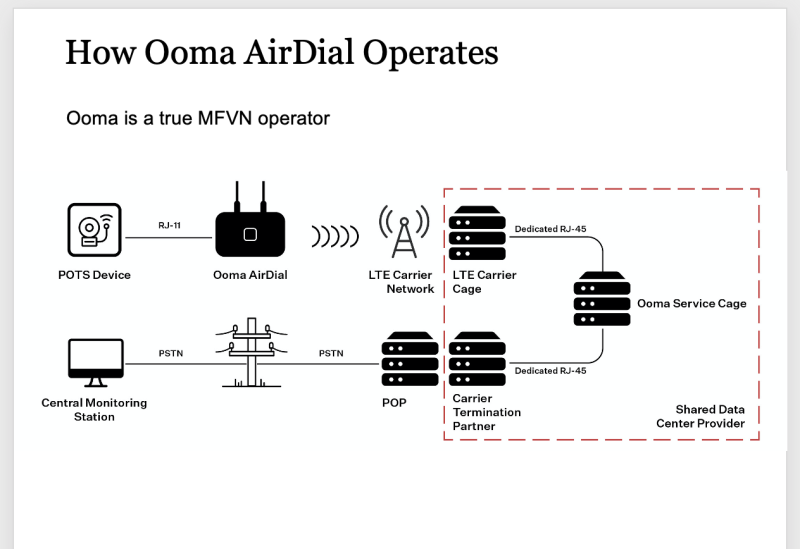T-Mobile for Business seems on a mission to find new niches. And since T-Mobile didn’t traditionally have a business unit, any new niche that it finds provides a greenfield revenue stream.
For instance, in the past year, T-Mobile indicated it was interested in emergency services.
And, of course, its most successful new niche is its fixed wireless access (FWA) broadband service for businesses.
Today, a company called Ooma announced that T-Mobile for Business is selling an Ooma service that helps enterprises maintain older connected devices in their buildings that were traditionally connected via analog, copper phone lines, also known as plain old telephone service (POTS).
And while service providers are sunsetting their POTS lines, many buildings in the U.S. use POTS connections for analog devices such as fire alarm panels, elevator phones, security panels, boiler alarms and door-entry intercoms. Many of these devices are so simple that they can’t be migrated to voice over internet (VoIP).
But they’re pervasive in buildings, and often they are critical for fire and safety certifications.
Ooma provides a device called AirDial, which can be plugged into a legacy service, often found in the old-fashioned telco closet in a building. Then the device also connects to Ooma’s private Access Point Name (APN), said Chris Burgy, VP of corporate development with Ooma.
“We have a dedicated link between our networks and traverse that,” said Burgy. “It’s kind of like an overlay, with a similar concept as MPLS.”
Ooma AirDial provides turnkey replacement for POTS by combining the AirDial base station with virtual analog phone service and a data connection through the nationwide T-Mobile network. AirDial deployments can be remotely managed through an online portal.

Scale of the opportunity
Burgy said that based on the most recent FCC data available, there are about 20 million POTS lines to U.S. businesses.
In 2019 the FCC removed its mandate that carriers deploy POTS lines. And carriers also are now free to charge whatever they want for their existing POTS lines.
“We’ve seen a dramatic increase in the cost of POTS lines," said Burgy. He said in the past a POTS line would cost from $40-$60, now the price has gone up to $400 and is increasing.
The sky-rocketing POTS bills have caught the attention of building managers and enterprises. “That’s what got T-Mobile’s attention,” Burgy said.
He said there are other vendors that supply alternatives to POTS, naming DataRemote, MarketSpark and Granite Epik. “AT&T and Verizon have had POTS solutions in their portfolio,” he said. “We are in discussions with Tier 1 carriers around this and have another wireless carrier that will be launching with this soon.”
Interestingly, Burgy mentioned that T-Mobile is also working with Ooma on the residential side. Since deploying its FWA home broadband service, T-Mobile has discovered that some of these customers would like a home phone, as well. So it’s offering an Ooma VoIP phone to fill this demand.